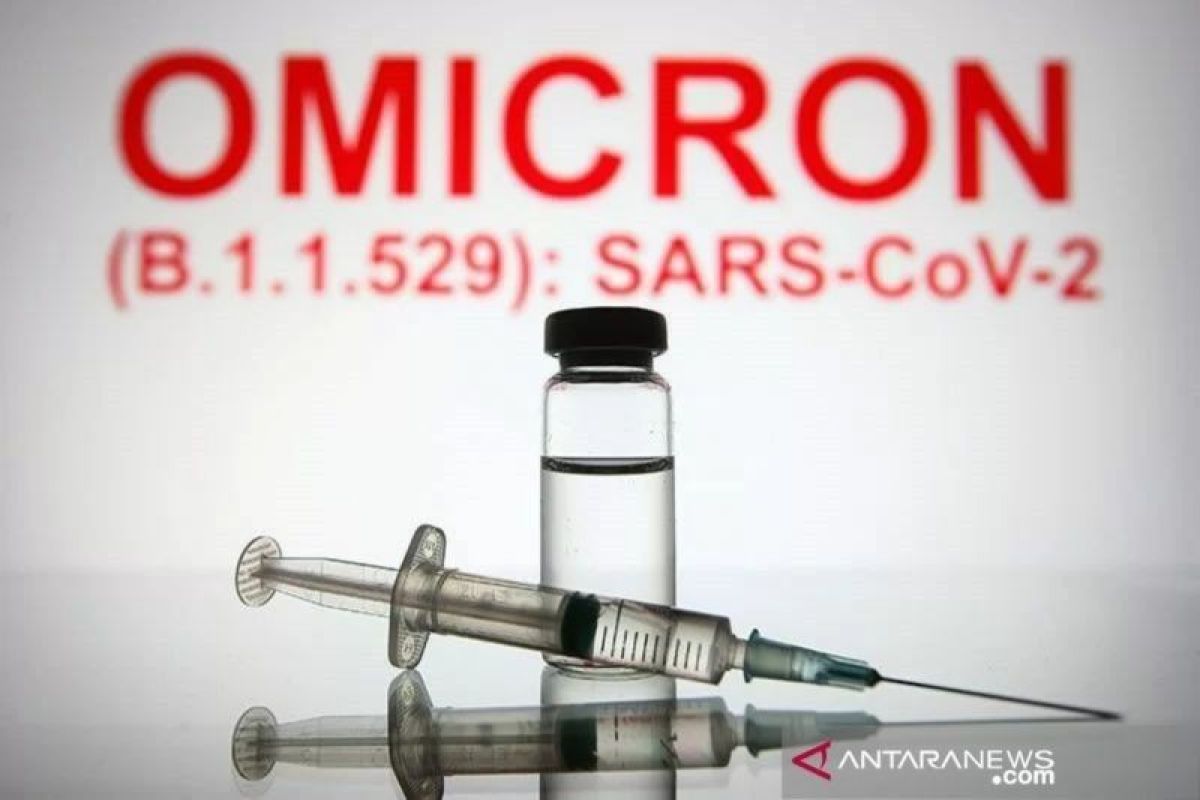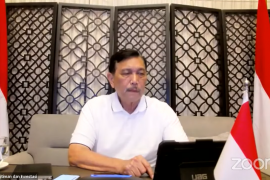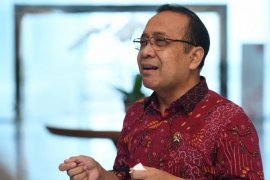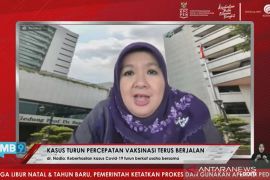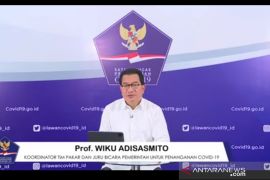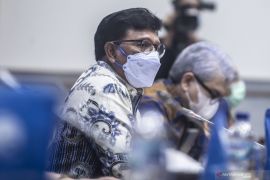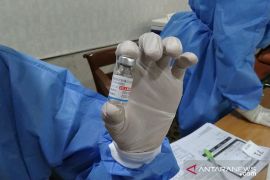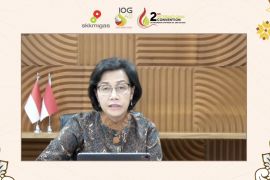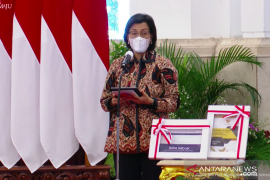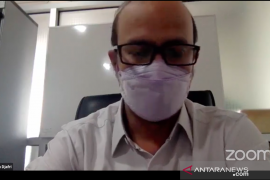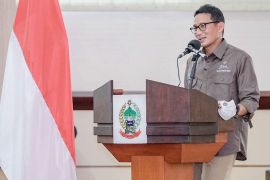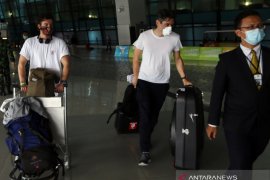With COVID-19 infections being successfully brought under control, normalcy has gradually been restored in the lives of Indonesians.
The nation recorded 179 daily confirmed COVID-19 cases and 10 deaths on December 22, 2021, thereby bringing the total count of COVID-19 cases so far to 4,261,072, and deaths to 144,034 until now.
Tourist attractions, restaurants, places of worship, and amusement centers are reopening under compliance to strict health protocol measures.
Wedding receptions, religious events, sports matches, and conferences are allowed to be held, albeit with several restrictions to stem the spread of COVID-19.
The Health Ministry quoted the United States Centers for Disease Control and Prevention (CDC) as reporting that Indonesia is included as a country with a low risk of COVID-19 transmission.
"Indonesia is included in the level one category, which is the low category," Siti Nadia Tarmizi, spokesperson of the ministry’s COVID-19 vaccination affairs, noted.
As the nation breathes a sigh of relief after being able to bring the COVID-19 transmission under control, the world has once again been shaken by reports of a new COVID-19 variant called Omicron that was first reported to the WHO from South Africa on November 24, 2021.
The risk of COVID-19 reinfection is more than five folds higher, with the omicron variant than with the delta variant, according to a new study by the Imperial College London.
Researchers also noted that there was no sign that the infections were any milder, though data on hospitalizations is still “very limited.”
As a precautionary response, the government has appealed to every Indonesian to remain alert by tightening the implementation of health protocols, utilizing the PeduliLindungi COVID-19 application, and getting vaccinated quickly.
On Dec 16, 2021, Health Minister Budi Gunadi Sadikin announced that a janitor at Jakarta’s Wisma Atlet Emergency Hospital for COVID-19 had contracted the Omicron variant. He was believed to have been infected from an Indonesian, who recently returned from Nigeria.
"Last night, the Health Ministry found that a patient, with the initial N, was confirmed to have contracted the Omicron variant on December 15, 2021. We confirmed the data with GISAID. This is the Omicron sequencing," Sadikin stated during a press conference. GISAID is Global Initiative on Sharing All Influenza Data.
Sadikin appealed to the public to not harbor concerns about Omicron's findings in Indonesia. In addition, he urged the public to follow health protocols, especially by wearing masks and maintaining distance.
"Do not travel abroad if you do not have important occasions," he emphasized.
Following the first Omicron case, President Joko Widodo (Jokowi) urged the people to stay calm and vigilant.
"So far, the Omicron variant has not shown severe symptoms, especially in patients who have been vaccinated," Widodo noted while urging people to not be panic-stricken and to implement strict health protocols, such as by wearing face masks, keeping a safe distance, and washing their hands frequently.
He also called on the public to immediately get vaccinated to protect themselves.
"Hence, I urge people, who have not received the vaccination, to immediately get it at health facilities," he emphasized.
The president also called on the local governments to intensify testing and tracing of close contacts to curb the spread of COVID-19.
The Indonesian government has banned the entry of foreign nationals, who have traveled to countries where the Omicron variant was detected in the 14 days leading to their visit to Indonesia.
The countries, include South Africa, Botswana, and Hong Kong (China), and nations that are geographically close to the countries with recorded Omicron transmission: Angola, Zambia, Zimbabwe, Malawi, Mozambique, Namibia, Eswatini, and Lesotho.
The Indonesian Health Ministry announced on Dec 18 two more patients infected with the Omicron variant in the country.
"The two most recent patients are a male patient, with the initials as IKWJ, 42, who traveled from South America and another male patient, with the initials M, 50, who traveled from England. Currently, both are undergoing quarantine at Wisma Atlet," Siti Nadia Tarmizi stated.
Both patients were confirmed to have contracted Omicron after undergoing mandatory quarantine for 10 days following their return from abroad.
On Dec 22, the ministry again announced the findings of two more Omicron cases, bringing the total count of Omicron cases in Indonesia to five so far. The two latest cases came from two Indonesians, who had just returned from the UK. The patients were being quarantined at the Wisma Atlet Hospital in Jakarta.
Tarmizi noted that a strict quarantine showed that the protection system, sought by the government to prevent transmission from COVID-19 sufferers coming from abroad, is working.
Indonesia that announced its first COVID-19 cases in March 2020 began its vaccination program on January 13, 2021, with President Joko Widodo as the first recipient.
The government is targeting to vaccinate 208,265,720 people in Indonesia in an effort to build herd immunity.
As of Dec 2021, at least 108,412,315 Indonesians, or 40.12 percent of the country’s population, or 52 percent of the target, had been fully vaccinated, while 154,593,449,149 million people, or 75 percent of the targeted recipients, had received their first vaccine dose. Over 1.2 million healthcare workers had received the vaccine booster.
The nation has procured various brands of the COVID-19 vaccine both from direct purchases as well as through foreign assistance mostly under the COVAX Facility scheme coordinated by the WHO.
Countries that have donated COVID-19 vaccine to Indonesia include the United States, Japan, the Netherlands, Australia, the United Arab Emirates, Britain, China, and France.
Meanwhile, the first case of the Omicron variant of COVID-19 is a wake-up call for people to remain disciplined in implementing the health protocols, COVID-19 Task Force spokesperson Wiku Adisasmito has stated.
"The discovery of the first Omicron case is a warning. We must remain vigilant by consistently implementing health protocols and not worrying excessively," Adisasmito stated.
Given the impact caused by the spike in the second wave of COVID-19, the public must continue to implement strict health protocols, he added.
Health protocols are the easiest, most affordable, and most effective way for people to prevent the transmission of COVID-19.
The government is also making efforts to protect the public, including by adjusting policies based on the development of COVID-19 cases, both nationally and globally.
Related news: Government implements lockdown in Wisma Atlet to thwart Omicron
Related news: Jokowi praises NU for pursuing vaccinations for public
Related news: Two more Omicron cases identified in Indonesia
Editor: Rahmad Nasution
Copyright © ANTARA 2021
